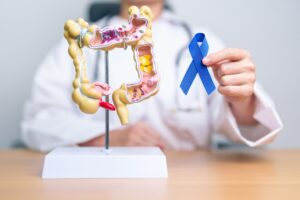
How to Achieve Healthy, Regular Bowel Movements
There’s a wide range of what’s considered normal, but “healthy” generally refers to consistency, ease, and frequency.

Irritable bowel syndrome (IBS) is a chronic condition that affects the large intestine. It causes symptoms like abdominal pain, bloating, diarrhea, and constipation. The length of time that IBS lasts can vary from person to person.
IBS (Irritable Bowel Syndrome) flare-ups can vary significantly from one individual to another. Some people may experience symptoms lasting for a few days, while others may suffer for weeks or months. Factors such as stress, diet, and lifestyle can influence the duration and severity of an IBS flare-up.
It’s crucial to seek professional help to manage symptoms and improve quality of life. With proper treatment and management, it is possible to reduce the frequency and intensity of flare-ups.
One may experience symptoms associated with IBS, such as:
Remember, these symptoms can vary from person to person, and you should always consult with a healthcare professional if you’re experiencing persistent gastrointestinal discomfort.
IBS is a chronic condition that does not typically resolve on its own. While its symptoms may come and go, or decrease in severity over time, the underlying condition remains. Therefore, it’s essential to establish ongoing management strategies to control IBS symptoms.
Lifestyle changes such as maintaining a balanced diet, regular physical activity, and stress management can significantly improve symptoms. However, always consult a healthcare professional for a proper diagnosis and individualized treatment plan.
Irritable Bowel Syndrome (IBS) is a multifaceted condition influenced by various factors. Predominantly, the factors can be classified into three broad categories: food, stress, and hormones.
Certain foods and beverages can trigger IBS symptoms in some people. However, this can vary from person to person. Some common food triggers include:
Stress is a known trigger for IBS flare-ups. It doesn’t cause the condition, but it can exacerbate the symptoms. Below are some stress-related triggers that individuals with IBS should be aware of:
Hormonal fluctuations can also trigger IBS symptoms, particularly in women. Here are some hormone-related triggers that individuals with IBS should be aware of:
Remember, everyone’s reaction to hormone fluctuations can vary. If you suspect hormonal triggers are exacerbating your IBS symptoms, consult with a healthcare professional for personalized advice and treatment options.
Treating Irritable Bowel Syndrome (IBS) generally involves a comprehensive approach that includes diet and lifestyle adjustments, stress management, and medication. Dietary strategies often involve identifying and avoiding trigger foods, increasing fiber intake, and staying hydrated. Stress management techniques such as yoga, meditation, and cognitive-behavioral therapy can help manage the emotional aspects of IBS.
In terms of medication, depending on the individual’s symptoms, healthcare professionals might prescribe anti-diarrheals, laxatives, antispasmodics, or even certain antidepressants. It’s important to note that what works for one person might not work for another, so treatment strategies should be tailored to each individual’s unique needs. Regular follow-ups with a healthcare provider are crucial to monitor progress and make necessary adjustments to the treatment plan.
If you suspect you have Irritable Bowel Syndrome (IBS), or are experiencing symptoms that disrupt your daily life or persist for more than three days, it’s essential to seek medical advice. This includes but is not limited to, symptoms like persistent diarrhea or constipation, recurrent abdominal pain, dramatic changes in bowel habits, or unexplained weight loss accompanied by gastrointestinal symptoms.
Your doctor can help to determine the cause of these symptoms, provide a diagnosis, and guide you in crafting a personalized treatment plan. Remember, early intervention can significantly improve the management of IBS and enhance your quality of life. Contact an Allied Digestive Health provider today!

There’s a wide range of what’s considered normal, but “healthy” generally refers to consistency, ease, and frequency.

An IBS diagnosis in older adults can be more complex because the symptoms can mimic more serious conditions that become prevalent with age.

Antibiotics are powerful drugs designed to kill harmful bacteria, but they don’t always distinguish between good and bad microbes.

The goal is to check for signs of cancer or precancerous growths (polyps) in individuals who have no symptoms and are considered at average risk.

Early detection can identify precancerous polyps or cancer in its initial stages, significantly improving treatment outcomes.

When you’re under stress—whether from a demanding job, personal challenges, or even anxiety caused by IBS itself—it can trigger physical reactions in your body.

Maintaining awareness of hemorrhoid symptoms and consistent use of effective treatments can help prevent these long-term issues.

The connection between female sex hormones and IBS is complex but crucial to understanding why your symptoms fluctuate.

Colitis and flare-ups can vary in intensity and frequency, influenced by factors such as diet, stress, and individual health conditions.

Some may tolerate caffeine well, while others with IBS or acid reflux need to monitor their intake to prevent aggravating their symptoms.

While there is currently no cure for Crohn’s disease, various treatments and lifestyle adjustments can help manage symptoms and improve quality of life.

Irritable Bowel Syndrome (IBS) tends to affect women more frequently than men, and hormones may play a significant role in this disparity.
Please call our office to schedule an appointment.
Center for Digestive Diseases: (908)688-6565